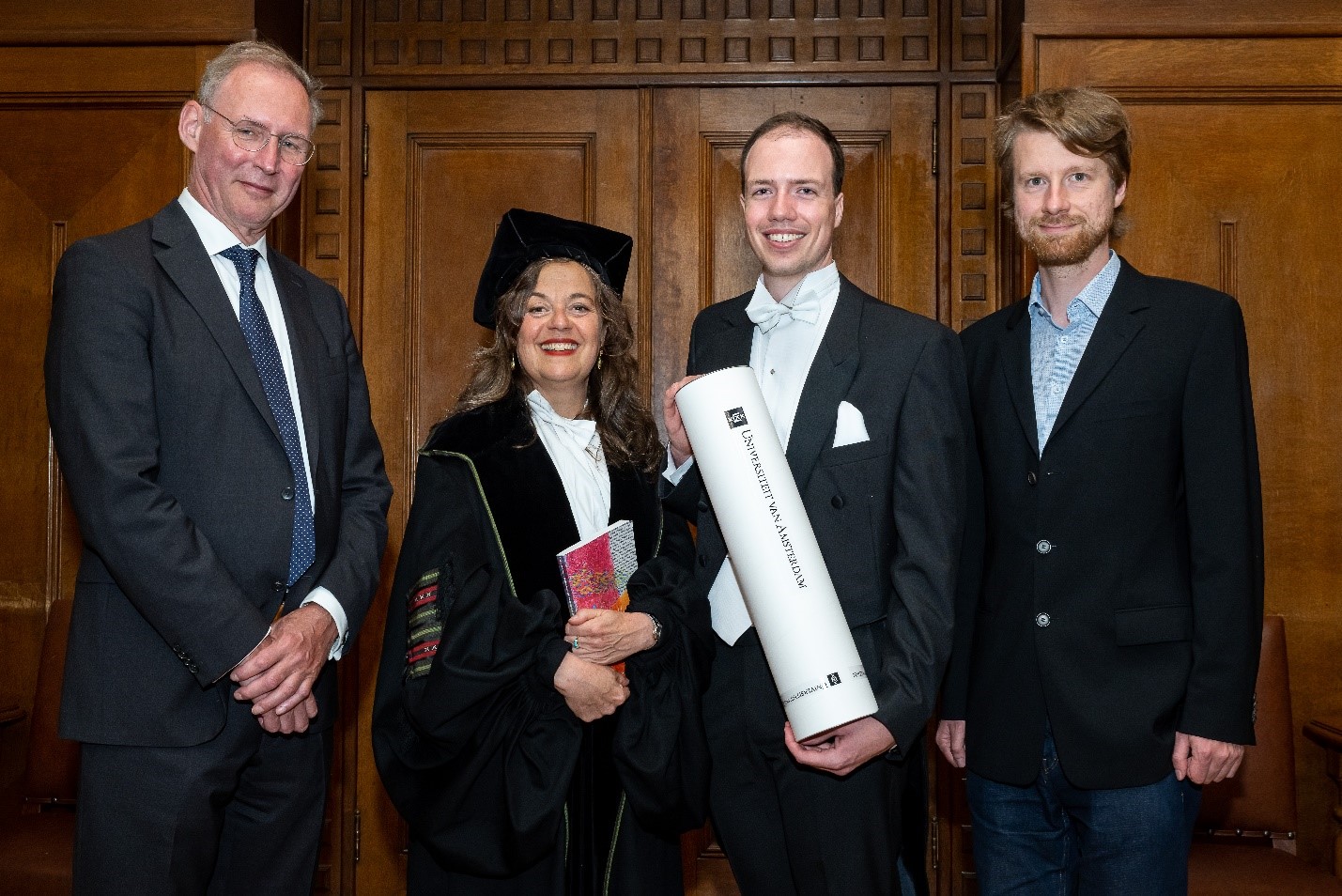
09 Aug Discoveries, Innovative Methods and Interdisciplinary Research: Boas van der Putten obtains his PhD at the Faculty of Medicine of the University of Amsterdam
On 24 June, Boas van der Putten successfully defended his PhD entitled “Using genomics to understand the global spread of Escherichia coli and antimicrobial resistance”.
Boas’ interest in antimicrobial-resistant E. coli began far before his PhD journey. While writing a literature thesis alongside his supervisor, Prof. Constance Schultsz, during his MSc, Boas learned about the immediate and growing threat of antimicrobial resistance (AMR). Already a major issue globally, AMR is impacting countries like the United States, which saw a 15% jump in AMR-related deaths in 2020, but its increasing impact will be most severe in low- and middle-income countries.
Boas was curious about the intersection of E. coli and AMR. E. coli is well known to cause infections such as urinary tract infections (UTI) or bloodstream infections and is increasingly resistant against commonly used antibiotics. In particular, E. coli expressing extended-spectrum beta-lactamases are a concern, because these E. coli (commonly referred to as ESBL E. coli) are resistant against most commonly prescribed antimicrobials. Boas mainly wanted to understand how ESBL E. coli can spread from humans to animals and vice-versa, or from humans to humans. Boas found that “particular types of E. coli are very well adapted to surviving in the human gut without causing symptoms.” This is because these E. coli can live in the gut undetected and spread through the human population. However, these E. coli types can infect and cause serious disease in other anatomical sites, such as the urinary tract. .
Not only does Boas’ research extents previous research in the field of AMR, but it also potentially serves as a resource for the scientific community. Boas and his team successfully benchmarked widely used methods that help infer genetic relations between bacteria. Boas and his colleagues also summarized ways to develop tests for scientific software and generated complete genomes for laboratory strains that were used throughout the research project. Boas hopes that these resources can “serve as inspirations for future research.”
For many PhD students, publishing their first scientific journal articles can be nerve-wracking. However, for Boas, these were long-awaited milestones where he could look forward to the reactions and critiques from colleagues. Constructive criticism is something that Boas openly welcomed especially from his supervisor Prof. Constance Schultsz. Not only was Prof. Schultsz a great supervisor for Boas, but she was also someone whom he could “have a lot of fun with and is really someone who can challenge you.”
In addition to Boas’ remarkable discoveries and research, he learned that there is something to be said about working with groups or institutions and not always on your own. One piece of advice that Boas would give to future PhD students is to spend their first year visiting scientific meetings, taking courses, and getting to know people and exchange ideas. Boas had to figure out a lot of things on his own, which was also a good learning experience, but wishes he could have learned a couple of things sooner. Furthermore, he appreciated working at two interdisciplinary institutions like AIGHD and Amsterdam UMC, as he had the opportunity to not only network with peers but was also forced to “consider the global picture of health.” He learned that there are countless factors at play within global health research projects, and that the success of a research project cannot depend on or be determined by the scope of the research itself.
“Boas has shown creativity, curiosity, and endurance during his PhD research, so in the end, it is not surprising that he has been very successful and has produced a very nice thesis”.
From the entire team at AIGHD, we congratulate Dr. Boas van der Putten on his PhD and wish him the best of luck in his future role working at the Netherlands Reference Laboratory for Bacterial meningitis.
